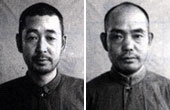Aid workers save lives but face increasing danger from attacks
By Agence France-Presse in United Nations (China Daily) Updated: 2014-08-18 07:27
Aid workers rushing to save lives worldwide are increasingly becoming targets for attack, a worrying development for NGOs trying to ease suffering in hostile war zones.
From South Sudan, where roaming militias killed six aid workers this month - three of them in an ambush - to Gaza, where 11 UN staff were killed in attacks on UN-run shelters, relief workers are living dangerously.
Over the past decade, the number of aid workers killed in attacks has tripled, reaching at least 100 deaths per year, UN officials say.
Afghanistan, South Sudan and Syria now rank as the most dangerous countries for humanitarian staff.
"Fifteen years ago, the greatest risk to the lives of aid workers was road traffic accidents. That is no longer the case. Violent incidents claim the lives of more aid workers than anything else," said Bob Kitchen, from the International Rescue Committee.
With operations in more than 40 countries, the IRC has lost 12 staff over the past six years: Five were executed by the Taliban in 2011, and two were killed in April in a horrific attack on the UN base in Bor, South Sudan.
Kitchen, who heads the IRC's emergency response team, attributes the increase to the changing nature of warfare, with more civilians being displaced internally, either unable or unwilling to flee the country.
"We are increasingly seeing the need for aid organizations to go into environments of war," he said.
Armed groups such as the Islamic State in Iraq consider aid workers a legitimate target, either as a quick way to earn money or to punish those who help their enemies.
"More and more, we're seeing parties to conflicts around the world ignore the rules of war to achieve a political end," said John Ging, head of operations for the UN Office for the Coordination of Humanitarian Affairs.
"I believe, unfortunately, that we are seeing more attacks on humanitarian workers as part of a growing deficit of humanity in conflict and in global politics."
The UN Security Council will discuss on Tuesday ways of better protecting aid workers during a meeting that coincides with World Humanitarian Day, which marks a 2003 attack on the UN compound in Baghdad when 22 UN staff were killed.
For UN aid worker Ken Payumo, helping civilians in South Sudan meant standing up to armed soldiers who demanded access to the UN compound in Bor after thousands had sheltered there, including probably rebel supporters.
On January 19, Payumo ordered the gates of the compound shut and refused to let the soldiers in. He stood unarmed with two other UN officials outside the compound refusing to let them in as some 80 battle-weary men pointed rifles at him.
"I remember making a decision at that time that everyone in that compound was really more important than I was," said Payumo, a 46-year-old former New York police officer.
(China Daily 08/18/2014 page10)










